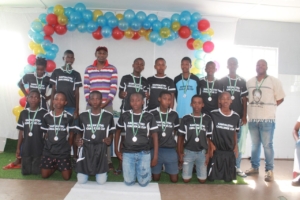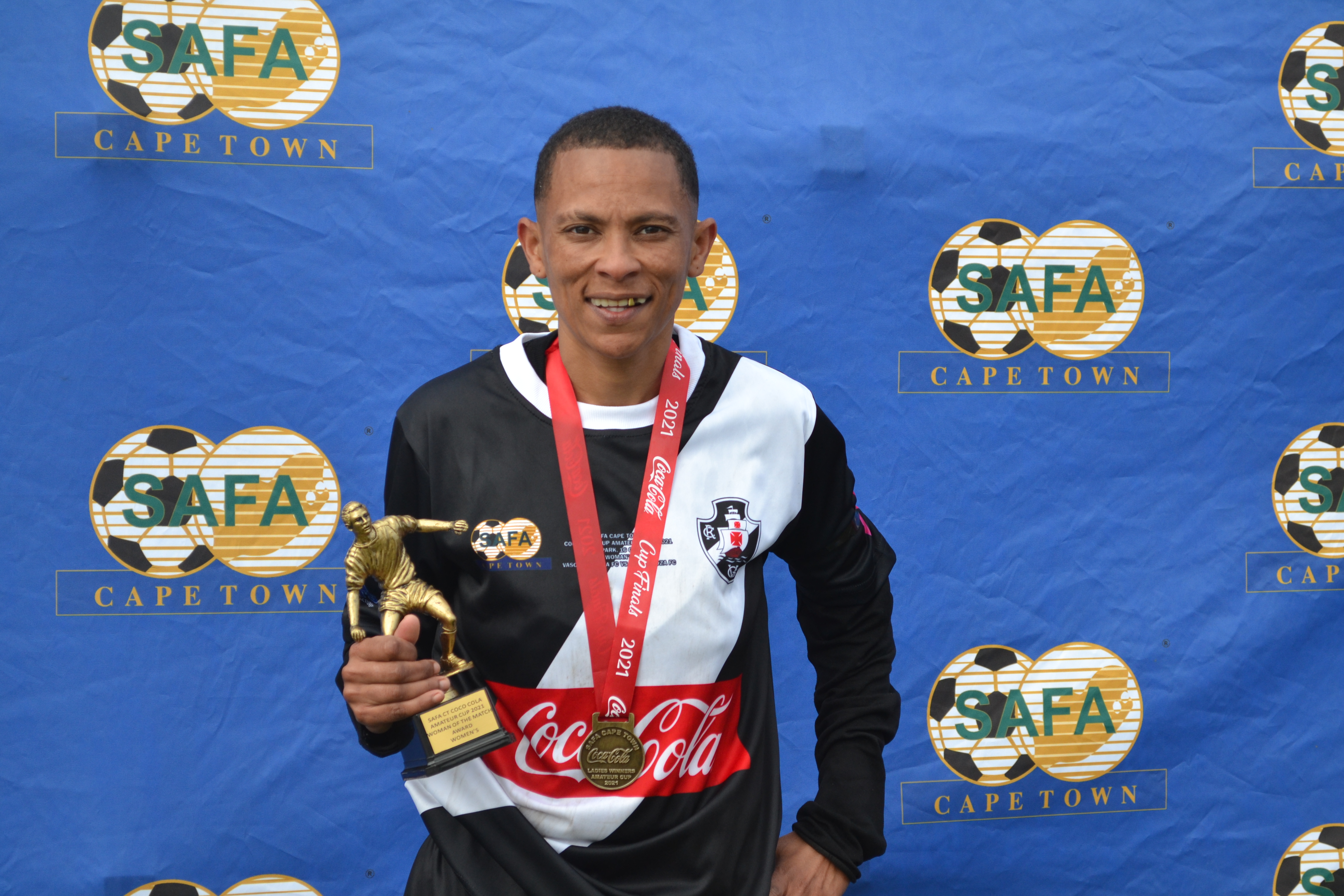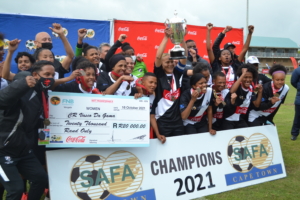By Joshua Hendricks Images: Supplied
Tapelo Xoki’s childhood trauma and battle with depression caught up with him while playing professional football at AmaZulu FC, and nearly pushed him past the point of no return. His long journey towards success at Usuthu was almost in vain.
But his decision to embark on therapy sessions and finding himself did not only help him overcome his upbringing and past trauma issues. It also aided him to regain his best form as one of the finest footballers on the land who is passionate about the development of the youth.
Recently, Xoki felt the need to dig deep into his own pocket to give back to his community of Khayelitsha when he, with the help of the Khayelitsha LFA officials, hosted the inaugural Kamvalethu (Our Future) Challenge Cup in which four divisions: u13, u15, u17 and u23s competed for the kits, medals and trophies that were on offer. “I thank everyone who has made the tournament a success. Not for me but for the youngsters in our community of Khayelitsha which we all know have a potential but face many challenges on daily bases,” Xoki said after the event.
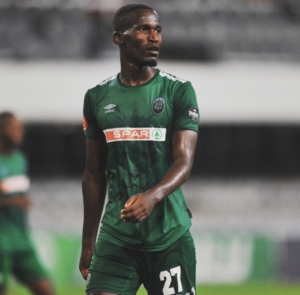
Nyongo, as Xoki was called in his days while playing for Cape Town Liverpool, West Coast, Silver City, Eleven Express (SAB League) and Khayelitsha LFA under 17 squad, had a long and difficult path to realise his dream. He grew up living with both his parents but was uprooted at the age of seven, making him feel rejected and that affected his development.
But he soldiered on and his talents landed him at Old Mutual Academy in 2012 but things didn’t go smoothly. “At Old Mutual there was a time I almost gave up because sometimes I felt mistreated. I even complained to my parents, but I persisted due to my friend who encouraged me to persevere”.
Xoki recalls that when he was 17 years old Old Mutual qualified for the Engen Knockouts but when it came to the main tournament the team developed doubts about his age and did not play him. “My teammates like Morne Nel would ask me why I wasn’t playing. I said I also don’t know. It hurt me a bit but I tried not to take note of it”.
Then former professional footballer George Dearnaley bought the Vodacom League (currently known as ABC Motsepe League) franchise of the club and played a big role in Xoki’s rise to prominence. “He made sure that he gave everyone a chance and had open trials. When he saw me he knew he could get something out of me. The Vodacom League was of a different level and of high intensity. I didn’t always play but close to the end of the season I became a regular”.
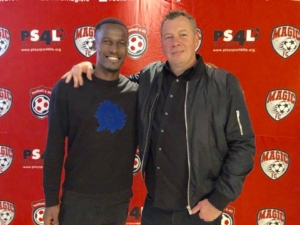
The following year Dearnaley took Xoki to AmaZulu for trials while he was also doing well in the Cape Town leg of the Nike Chance trials. “On a Monday I was told I’m going to Durban for trials and I had to attend the Nike Chance on a Friday. On top of that, I still had my parents on my case about school because I had registered for a sports management programme at CPUT (Cape Peninsula University of Technology)”.
Xoki went to Durban but wasn’t really noticed because AmaZulu had a midweek game. “I couldn’t train with the first team but I was watched by Marc Kruner, who was the technical director. So I went to Joburg for Nike but Marc was there too for the Nike Chance and he observed me again. I didn’t make the final cut for Nike but Kruner spoke to me about Usuthu and I told him I’d have to quit my studies.
“I arrived in Cape Town to the news that AmaZulu wanted me back because the coach didn’t see me and my report was good. I went back to Durban and the then coach, Craig Roslee, was happy with me and I signed a pre-contract in 2014.”
In the last three years Xoki had to confront demons from his past as challenges creeped up on him when he least expected. “People don’t really talk about child trauma – the rejection and hurt that you go through when you are a child. Remember, I left my mother at seven and I had to go to a new family. I didn’t really know my father personally and I didn’t know the family.
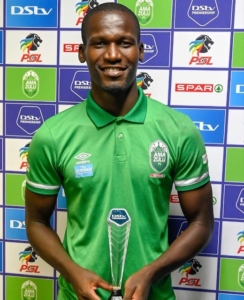
“At that time I felt rejected and neglected because I didn’t know what was going on and no one was telling me anything because I was a child. You grow up with those scars but you don’t really know that those are scars. I had no one to confide in. When I was hurt, I just bottled things up. I did not want to get into trouble for fear of being sent away. I just had to soldier on and be my own man.
“In 2017 I got smashed in a game and it affected my kidney. Then all those emotions started to pour back in slowly because I was not training and I was trying to get back to fitness. I became a bit depressed since I was used to keeping things to myself.”
Not knowing how to address the feelings affected his relationship with his girlfriend. But fortunately, he had friends who could see that something was not right. “They asked me about my family, which is something I was not used to because people wouldn’t ask what’s bothering me. There was a day when I just cracked and cried.”
Xoki, though, had realised how to deal with the situation. “It starts off the field and then on it. I got to a phase when I was playing and then not playing, and then the remarks and feelings of rejection returned. I became bitter, angry and moody. I was turning into something I was not. I wasn’t positive with my reactions at all.
“After a while I started to see a bit of change. The way I dealt with adversity started to change. I was more positive and my confidence started to come back. Other than blaming people and becoming bitter, I would look for positivity. And saying I need to work more, I need to do that, if it’s not your time then it’s okay.”
His outlook on life has since improved. “My wish is to spread awareness about child trauma. There was a time when I asked myself so many negative questions around injustices. Like why did my mother take me to my father, and it became too much? The negative thoughts creeped into my mind to a point where I wanted to take my own life and disappear. But luckily, I found help. Some guys are not as fortunate.”
